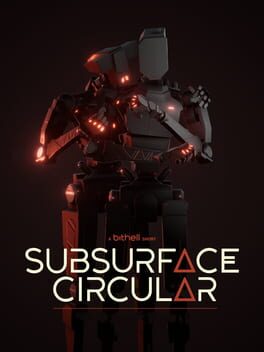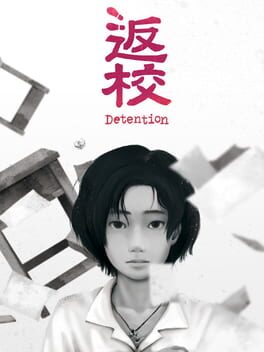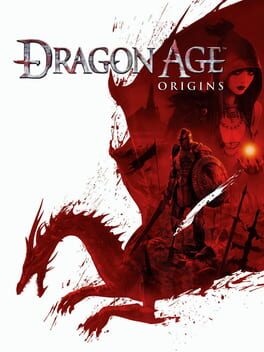rorycoyne
2017
Would you trust an AI to do your job? The central premise surrounding Subsurface Circular concerns increasing tension between humanity and the robots it has built to afford increasing comfort. These tensions appear to reach a boiling point when it is discovered that robots (known as ‘teks’) are starting to go missing. You play as one detective tek who takes it upon themselves to track down the source of these disappearances. However, there’s one catch: you’ll be doing so entirely on a train. Subsurface Circular is a text-based puzzle game which takes places entirely on an underground metro system in a fictional city where teks perform many of the tasks deemed too laborious by humans. All told, it’s an engaging, if not entirely. unprecedented, setup for the game’s narrative. You’ll interact exclusively with other teks throughout this short game, each having strong a personality, motivations and even feelings. You’ll negotiate, charm and sleuth your way through the teks you encounter to uncover the truth about what is happening. The game thus all plays out with chat room-esque conversation floated on-screen, but done so in an effective manner. The music and art design are also both stellar; this feels like a living, breathing city, even though the teks themselves aren’t. Without revealing plot details, the tension starts to ramp up towards the end of the journey and will keep you engaged. You’ll reach that fairly quickly, as Subsurface Circular is quite a short game that leaves the player wanting more. Given this, and its modest asking price on the eShop, it’s worth picking up and experiencing.
2017
Detention is a psychological thriller, point-and-click game, taking place amidst the political tension which characterised 1950s Taiwan. You’ll play as Fang Ray-xin, a student trapped in her high school and forced to unravel the trauma experienced in her adolescent years. Overall, I found the narrative to be immensely gripping and intelligent from start to finish, and there are enough twists and turns to keep you hooked. The gameplay itself isn’t going to revolutionise the genre by any means, and is in fact quite simplistic, but given the game’s short runtime this isn’t a major issue. The game’s scenery is beautifully brought to life through hand-drawn illustrations which are consistently captivating. Horror fans going in for a good scare will be disappointed - the game is more so creepy and disturbing than outright bone-chilling. However, the atmosphere conjured by Red Candle Games will surely stay with you for a long time after you’ve seen the credits. Detention is an engaging little point-and-click game, that despite its shallow gameplay, possesses a story well worth experiencing.
2018
Just breathe. These are the first words shown in Celeste’s opening cutscene, and a central refrain throughout its story. These are also words that you’ll want to utter as a means of self-soothing; during the gripping puzzle-platforming of Celeste, you will die many, many times. This is because once you start to experience this devastatingly beautiful journey, you will be utterly compelled to see it through to the end.
Protagonist Madeline seeks to reach the summit of Celeste mountain (based on a real-world location by the same name). While Madeline’s exact motive isn’t immediately clear, the player comes to understand that she is grappling with profound personal struggles. Through the interactions between Madeline and an engaging cast of characters, you’ll come to understand more about Madeline’s mental health difficulties, her strained relationship with her loved ones, and what has fuelled her ascension atop Celeste mountain. The storytelling in Celeste is among the finest examples in contemporary video gaming; poignant and elegant in a way that feels like it transcends the medium and makes a direct connection with the player.
Celeste’s platforming is deeply satisfying; for the majority of the time, each chapter is divided into a series of screens, and in each screen, you must get from point A to point B. The way in which you achieve this will test your abilities to the absolute limit, but when you get there, it’s deeply rewarding. Mechanics are kept to simple directional movements, jump, and a dash which often serves as a double-jump. As mentioned, clearing a screen can take more than a few attempts; it’s not uncommon to finish a chapter with several hundred deaths racked up. However, this never feels unfair; when I failed, it was expressly my fault – not the product of opaque level design (a common pitfall among many of Celeste’s contemporaries).
For those who might otherwise be put off by the game’s difficulty, but are keen on experiencing the story, Celeste does offer an assist mode, which alleviates the challenge considerably. By contrast, players can ramp up the challenge by seeking out collectible strawberries which are peppered throughout each stage, which is no small feat. While there’s no reward for collecting these items, finding and completing a rhythm-based screen will unlock a ‘B-Side’ for each chapter. These B-Sides elevate the difficulty level further, and require weapons-grade precision to clear. In this way, Celeste caters to all play styles and backgrounds.
The art style and soundtrack are both beautiful. There are some stunning mountain vistas throughout the game’s 7 chapters, which are astoundingly portrayed through the game’s pixel art style. Furthermore, there is a satisfying level of variety in the game’s backdrops, with scenery adopting a supernatural tone in later chapters.
All told, Celeste is a magnificent game that everyone should experience. It has a fantastic challenge to offer for those looking for one, and the accessibility options open the door to all. This game has a beautiful story to tell – I came to empathise with Madeline’s journey profoundly, and her tale will surely stay with me for a very long time.
Protagonist Madeline seeks to reach the summit of Celeste mountain (based on a real-world location by the same name). While Madeline’s exact motive isn’t immediately clear, the player comes to understand that she is grappling with profound personal struggles. Through the interactions between Madeline and an engaging cast of characters, you’ll come to understand more about Madeline’s mental health difficulties, her strained relationship with her loved ones, and what has fuelled her ascension atop Celeste mountain. The storytelling in Celeste is among the finest examples in contemporary video gaming; poignant and elegant in a way that feels like it transcends the medium and makes a direct connection with the player.
Celeste’s platforming is deeply satisfying; for the majority of the time, each chapter is divided into a series of screens, and in each screen, you must get from point A to point B. The way in which you achieve this will test your abilities to the absolute limit, but when you get there, it’s deeply rewarding. Mechanics are kept to simple directional movements, jump, and a dash which often serves as a double-jump. As mentioned, clearing a screen can take more than a few attempts; it’s not uncommon to finish a chapter with several hundred deaths racked up. However, this never feels unfair; when I failed, it was expressly my fault – not the product of opaque level design (a common pitfall among many of Celeste’s contemporaries).
For those who might otherwise be put off by the game’s difficulty, but are keen on experiencing the story, Celeste does offer an assist mode, which alleviates the challenge considerably. By contrast, players can ramp up the challenge by seeking out collectible strawberries which are peppered throughout each stage, which is no small feat. While there’s no reward for collecting these items, finding and completing a rhythm-based screen will unlock a ‘B-Side’ for each chapter. These B-Sides elevate the difficulty level further, and require weapons-grade precision to clear. In this way, Celeste caters to all play styles and backgrounds.
The art style and soundtrack are both beautiful. There are some stunning mountain vistas throughout the game’s 7 chapters, which are astoundingly portrayed through the game’s pixel art style. Furthermore, there is a satisfying level of variety in the game’s backdrops, with scenery adopting a supernatural tone in later chapters.
All told, Celeste is a magnificent game that everyone should experience. It has a fantastic challenge to offer for those looking for one, and the accessibility options open the door to all. This game has a beautiful story to tell – I came to empathise with Madeline’s journey profoundly, and her tale will surely stay with me for a very long time.
What's in a name? The eponymous star of Grand Theft Auto IV's second and final DLC provides an interesting take on the game's pseudo New York setting, Liberty City. However, the player does not control club owner Gay Tony himself, but rather his right-hand man Luis Lopez, who serves as the catalyst for many of the DLC's events. As such, the player experiences the rise and fall (and rise) of Tony's empire through Luis' eyes - a smart choice, offering better insight into the lives of the characters in Tony's orbit.
In a welcome change to the usual loading screens and menus, the interface is given a glitzy, disco-esque makeover. This serves to immediately both disarm the player and to stake this DLC's claim as a distinct experience from both the main campaign and its DLC predecessor, The Lost & The Damned. The opening story beats play out in characteristically elegant Rockstar fashion; Tony Prince is the owner of a successful but turbulent entertainment empire, over which the negative influence of drug addiction casts a dark shadow. The DLC's colourful cast of characters are introduced in quick succession, and before you know it, you're rolling through this DLC's batch of missions.
These missions are hardly worlds apart from the usual caper from the base game; drive to X location, perform Y nefarious activity, gun down Z amount of goons, escape the police. However, Rockstar has gone to great lengths to spice up the formula; whether you're skydiving onto Liberty Island, climbing the Empire State Building, or scaling a high-speed subway car, these missions feel fresh, exciting, and importantly, challenging even for GTA veterans. My one major reservation concerns the helicopter-based missions; air traversal is as fun as it's ever been, but combat is very frustrating. The lack of a targeting system while operating a helicopter, and being tasked with downing enemy choppers, is more time-consuming and aggravating than it needs to be, and lead me to simply engaging in head-on collisions and hoping for the best.
If you've explored every nook and cranny of GTA IV's Liberty city in the base game, there's plenty more to do and see in this DLC. Obviously, the new nightlife offerings in the form of Maisonette 9 (straight club) and Hercules (gay club) offer some enjoyment, and the cage fighting mini-game is a cool addition. These extracurricular offerings help to pad out the experience, and justify the DLC's €19.99 asking price. Even without the extra content, the missions alone constitute an impressive amount of content, outstripping the runtime of TLAD.
The tight and compelling narrative of TBoGT will have you hooked from start to finish, and the character writing is as brilliant as what you've come to expect from Rockstar. Character dialogue is laced with gay referential subculture (anything less would have disappointed), leading to some genuine laugh-out-loud moments that exemplify the stylish irreverence of GTA. These are characters that you're going to remember for a long time after the credits roll. Furthermore, a couple of missions constitute re-tellings of missions from the previous two instalments, giving the player a different perspective (i.e., that of Luis) on some pivotal moments, and expanding GTA IV's lore. Tangentially, it's nice to see the game refreshed with some new songs (a suitably fruity batch of additions), and the new vehicles and weapons help to diversify your approach to gameplay.
TBoGT's narrative arguably eclipses that of its DLC predecessor (and arguably also, that of the main game), and is among the reasons why this DLC is an absolute must-buy for those who enjoyed GTA IV.
In a welcome change to the usual loading screens and menus, the interface is given a glitzy, disco-esque makeover. This serves to immediately both disarm the player and to stake this DLC's claim as a distinct experience from both the main campaign and its DLC predecessor, The Lost & The Damned. The opening story beats play out in characteristically elegant Rockstar fashion; Tony Prince is the owner of a successful but turbulent entertainment empire, over which the negative influence of drug addiction casts a dark shadow. The DLC's colourful cast of characters are introduced in quick succession, and before you know it, you're rolling through this DLC's batch of missions.
These missions are hardly worlds apart from the usual caper from the base game; drive to X location, perform Y nefarious activity, gun down Z amount of goons, escape the police. However, Rockstar has gone to great lengths to spice up the formula; whether you're skydiving onto Liberty Island, climbing the Empire State Building, or scaling a high-speed subway car, these missions feel fresh, exciting, and importantly, challenging even for GTA veterans. My one major reservation concerns the helicopter-based missions; air traversal is as fun as it's ever been, but combat is very frustrating. The lack of a targeting system while operating a helicopter, and being tasked with downing enemy choppers, is more time-consuming and aggravating than it needs to be, and lead me to simply engaging in head-on collisions and hoping for the best.
If you've explored every nook and cranny of GTA IV's Liberty city in the base game, there's plenty more to do and see in this DLC. Obviously, the new nightlife offerings in the form of Maisonette 9 (straight club) and Hercules (gay club) offer some enjoyment, and the cage fighting mini-game is a cool addition. These extracurricular offerings help to pad out the experience, and justify the DLC's €19.99 asking price. Even without the extra content, the missions alone constitute an impressive amount of content, outstripping the runtime of TLAD.
The tight and compelling narrative of TBoGT will have you hooked from start to finish, and the character writing is as brilliant as what you've come to expect from Rockstar. Character dialogue is laced with gay referential subculture (anything less would have disappointed), leading to some genuine laugh-out-loud moments that exemplify the stylish irreverence of GTA. These are characters that you're going to remember for a long time after the credits roll. Furthermore, a couple of missions constitute re-tellings of missions from the previous two instalments, giving the player a different perspective (i.e., that of Luis) on some pivotal moments, and expanding GTA IV's lore. Tangentially, it's nice to see the game refreshed with some new songs (a suitably fruity batch of additions), and the new vehicles and weapons help to diversify your approach to gameplay.
TBoGT's narrative arguably eclipses that of its DLC predecessor (and arguably also, that of the main game), and is among the reasons why this DLC is an absolute must-buy for those who enjoyed GTA IV.
2009
I did not anticipate becoming quite as engrossed in Dragon Age: Origins as my bloated playtime suggests. The combat is profound in that it allows for a nuanced approach to RPG strategy, but its format can become tiresome, particularly during certain overly prolonged sections such as the Deep Roads and The Fade. In addition, while the main characters are far from poorly written, I found them only mildly charming at best, grating at worst (although I'm sure this varies with play style).
Despite these shortcomings, however, Dragon Age: Origins has a surprising amount to offer. You're looking at a base game of at least 25 hours of content (excluding the myriad side quests), plus a staggering amount of content in the form of DLC. Speaking of staggering, Dragon Age: Origins has the player choose from one of six 'origin stories', which vary in terms of character race and background. The player's chosen origin dramatically affects how the player interacts with and experiences the world of Ferelden, such that two players are likely to have very different experiences. This may not always be a plus; I chose to play through the game as a warrior elf, and while I'll admit this character's origin story was intriguing, it doesn't have the same compelling narrative as the other origin stories that I've read about.
On the subject of narrative, the game's overall plot rises above the stereotypical, borderline-cringeworthy affair that many western RPGs subject themselves to, with player choices having a decent influence on some key outcomes. While narratively, I found the game's ending to be reasonably satisfying, the final boss was a letdown for me, feeling as though I was taking a backseat and being propelled from one cutscene to the next (without delving into spoilers).
In terms of graphics, this is by no means up there with the prettiest games of this era (puzzling, given that BioWare's Mass Effect 2, which released a couple of months later, is visually stunning). As such, players in 2022 are going to find some of the environments and character models a bit dated, but as long as you go into the game with this in mind, it doesn't detract from the overall experience.
Dragon Age: Origins is an engaging, deep RPG that stands out as one of the best in the genre in many respects. While there are some issues with pacing and graphical quality, these certainly do not mar a story well worth experiencing and a compelling take on the contemporary RPG.
Despite these shortcomings, however, Dragon Age: Origins has a surprising amount to offer. You're looking at a base game of at least 25 hours of content (excluding the myriad side quests), plus a staggering amount of content in the form of DLC. Speaking of staggering, Dragon Age: Origins has the player choose from one of six 'origin stories', which vary in terms of character race and background. The player's chosen origin dramatically affects how the player interacts with and experiences the world of Ferelden, such that two players are likely to have very different experiences. This may not always be a plus; I chose to play through the game as a warrior elf, and while I'll admit this character's origin story was intriguing, it doesn't have the same compelling narrative as the other origin stories that I've read about.
On the subject of narrative, the game's overall plot rises above the stereotypical, borderline-cringeworthy affair that many western RPGs subject themselves to, with player choices having a decent influence on some key outcomes. While narratively, I found the game's ending to be reasonably satisfying, the final boss was a letdown for me, feeling as though I was taking a backseat and being propelled from one cutscene to the next (without delving into spoilers).
In terms of graphics, this is by no means up there with the prettiest games of this era (puzzling, given that BioWare's Mass Effect 2, which released a couple of months later, is visually stunning). As such, players in 2022 are going to find some of the environments and character models a bit dated, but as long as you go into the game with this in mind, it doesn't detract from the overall experience.
Dragon Age: Origins is an engaging, deep RPG that stands out as one of the best in the genre in many respects. While there are some issues with pacing and graphical quality, these certainly do not mar a story well worth experiencing and a compelling take on the contemporary RPG.




